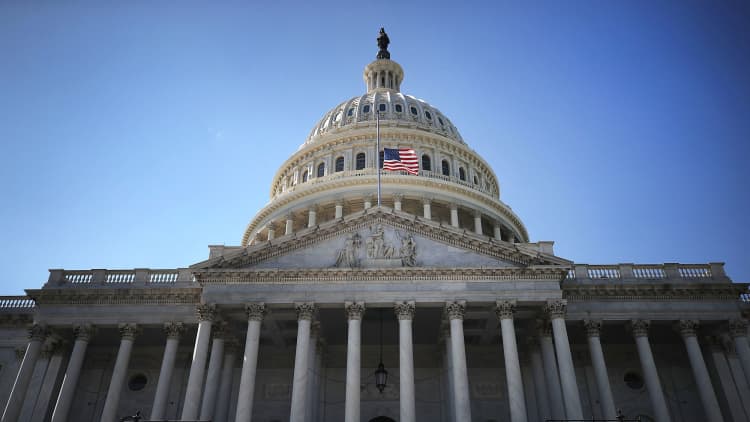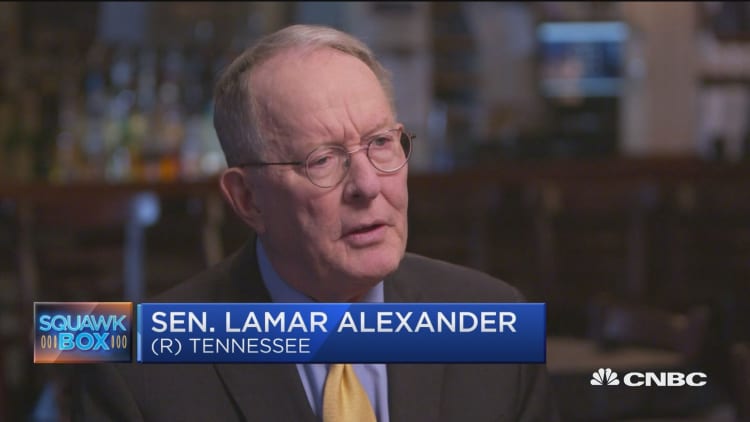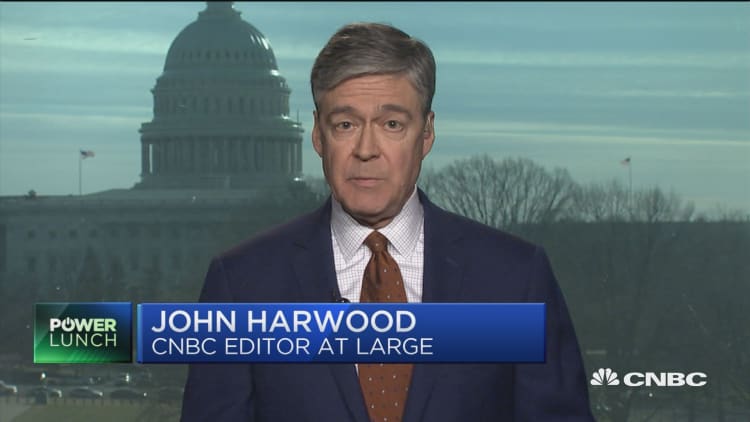
When House Speaker Paul Ryan banged his gavel down on a $1.5 trillion tax cut, the prospect of looming revenue shortfalls didn't temper his joy a bit.
To the contrary, revenue shortfalls could make his other political goals easier to achieve. Less revenue means government can do less — and Ryan wants government to do less.
That simple reality explains the head-snapping turnabout in Washington's deficit debate. Under President Barack Obama, amid the Great Recession, congressional Republicans assailed $1 trillion deficits as a spending-induced threat to America's future. Under President Donald Trump, with the economy humming, they've slashed taxes, even though the Bipartisan Policy Center now warns that deficits may reach $1 trillion in the next fiscal year.
To Ryan-style Republicans, then and now represent entirely different circumstances. And yet they face serious risks to their majorities in 2018, just as Democrats did seven years ago after the passage of economic stimulus legislation and the Affordable Care Act.

Ryan views tax cuts as a policy to spur economic growth — no matter what the state of the federal budget. An increase in the deficit, which mainstream economists consider a certainty, is beside the point.
Rising debt, in fact, strengthens his zeal for his preferred deficit-reduction policy. That policy is to reduce spending by shrinking the size and scope of government that Democratic political initiatives have built.
In particular, Ryan wants to curb spending on the giant "entitlement" programs of Social Security, Medicare and Medicaid. "How you tackle the debt and the deficit," the speaker declared recently, is by "entitlement reform."
Democratic presidents saw those programs as a means of preventing destitution and medical calamity among senior citizens, the disabled and the poor. More than any other contemporary Republican leader, Ryan represents the philosophical tradition that opposed their creation in the first place.
After Franklin Roosevelt signed Social Security into law in 1935, his Republican opponent Alf Landon condemned it as "the largest tax bill in history," a "cruel hoax" and "a fraud on the workingman." A generation later, the emerging conservative leader Ronald Reagan offered similar arguments in debates leading up to the establishment of Medicare and Medicaid.
"One of the traditional methods of imposing statism or socialism on a people has been by way of medicine," Reagan argued in 1961. "It's very easy to disguise a medical program as a humanitarian project."
In office, Reagan and other Republican leaders resigned themselves to the permanence of Social Security and Medicare, given their strong support among senior citizens, who vote in large numbers. Spending-cut efforts have usually centered elsewhere in the budget, especially on more politically vulnerable programs serving the poor, including Medicaid.
But Ryan entered politics as a devotee of 20th-century author Ayn Rand, who opposed tax-and-spend benefit programs as immoral confiscation that sapped the power of capitalism. More aggressively than most, he has refused to accept the major entitlement programs in their current forms, insisting on spending curbs rather than tax increases as the path to solvency.
Thus the speaker has supported partial privatization of Social Security, conversion of Medicare to a "premium support" program for purchase of private insurance, and per-beneficiary Medicaid limits that would reduce federal spending by hundreds of billions of dollars. In opposing the 2010 Simpson-Bowles deficit reduction report, which called for both tax hikes and spending limits, he explained, "Increasing the government's take from the economy hinders growth."
But there's huge political jeopardy for Republicans in moving to shrink government to fit the reduced tax revenues they've decided to generate. Evidence indicates that, unlike Ryan, most Americans want government to do more, not less.
During last year's presidential campaign, leaders of both parties vowed to assist average families left behind in an era of high corporate profits but slow-growing wages. Trump, pledging not to touch Social Security, Medicare and Medicaid, galvanized "forgotten" blue-collar whites anxious about threats to their benefits.
Voters applauded those messages. In an NBC News/Wall Street Journal poll in April, 57 percent of all Americans agreed that government should do more to meet people's needs, outpacing the 39 percent who said government is doing too much.
That represented the strongest support for more government action in the two decades that the NBC/WSJ poll has asked that question. Two-thirds of college-educated white women and 59 percent of both independents and non-college white women favored more government action.
All represent critical constituencies for embattled Republicans fighting to keep control of the House and Senate next November. Senate Majority Leader Mitch McConnell, less ideologically driven than Ryan, has noticed.
Citing Democratic opposition to curbing entitlements, McConnell said last week: "I would not expect to see that on the agenda" in 2018.
WATCH: Will there be an infrastructure bill?



